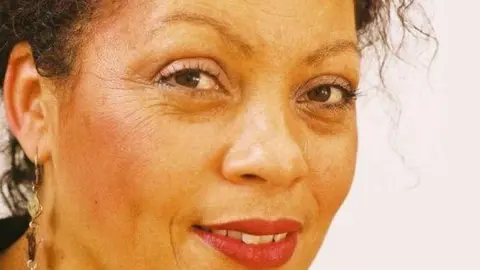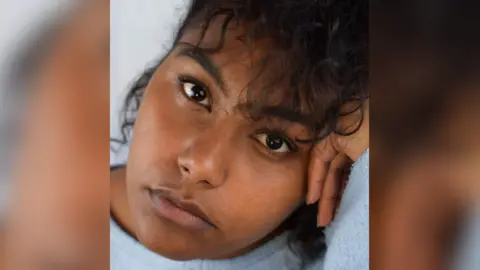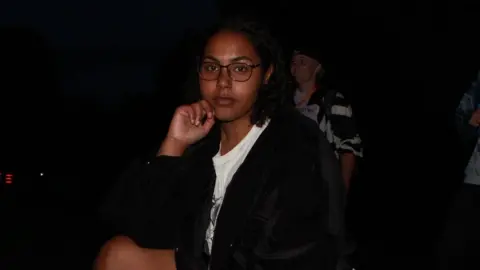School curriculum in Wales: Diverse talent 'must be celebrated'
Black, Polish and Italian contributions to Wales must be taught to all children in schools, the head of a curriculum review has said.
Almost 35,000 people have signed a petition for Britain's colonial past to be taught in Welsh schools.
Charlotte Williams said it was important "to get away from a black narrative of disadvantage".
She said the contributions of musicians, artists and academics from all communities must be celebrated.
"There are large parts of Wales where children will not have seen black people except for on TV - and sometimes this can be in very negative ways," she said.
Following worldwide protests after the death of George Floyd in US police custody, there have been calls for greater recognition of Wales' role in colonialism and slavery to be taught in schools.
The new working group led by Prof Williams has been set up by the Welsh Government to see how the new curriculum could be changed.
She said it was essential slavery and injustices faced particularly by black people were taught in schools - but that also more had to be done to showcase role models and cultural diversity.
"If we miss out on this, we are doing a disservice to our own history," she said.
"But I don't want to send out the message that we are all terribly disadvantaged and victims.
"This is an appeal to schools and teachers to engage with the positive contribution of black and minority ethnic groups, the richness and vibrancy of it."
Wales' new curriculum, set to be introduced in 2022, is based on six "areas of learning and experience" and does not set out exactly what schools should be teaching.
But Prof Williams said it would be challenging due to the lack of staff diversity and said teachers needed to be given support to "be bold and brave".
Fewer than 1% of teachers in Wales say they are black, Asian, or from other or mixed minority ethnic backgrounds, according to the 2019-2020 school workforce census.
Forty of the 1,065 students who began training to become teachers in Wales in 2018-2019 said they were from a minority ethnic group.
Prof Williams said some teachers may be scared of exploring certain issues due to a fear of sounding racist, a lack of knowledge, or not being "politically correct".
"There's this awful thing about fear of saying or doing the wrong thing," she said.
"It's about being bold and being brave, and not stigmatising, and to use examples that will turn people's thinking around to a kind of normal thinking."
 Welsh Government
Welsh GovernmentGrowing up in Llandudno, Prof Williams said her family was the only black one in the town.
"I cannot think of examples from my own education that were pertinent to me and my identity and my heritage," she said.
"I grew up not understanding my place and my identity and how I fitted in Wales. I think that's what happening to children, they can't necessarily connect."
According to the most recent school census in January 2019, more than 33,000 pupils over the age of five had a black, Asian, minority ethnic or mixed background, making up 8.3% of students in Wales.
But this varied widely by area, from 2% in Blaenau Gwent, to 28% in Cardiff.
"We used to go away to West Africa and we would come back, we'd had this fantastic experience, but no-one would ask us about it," Prof Williams said.
"Children are not asked and then they don't expect, which is even sadder, when they don't think their knowledge and their experience has anything to do with where they are."
She said making sure children in seemingly "all-white, monocultural" communities learnt about Wales' multicultural heritage would be challenging, but it was important all children did so and saw themselves reflected in lessons they were taught.
This could mean encouraging schools to showcase more literature, music and art by minority ethnic artists or teaching traditional recipes in lessons, as well as learning about how different groups had influenced and shaped their community.
"I'm not afraid to say that I think it will take time, I think there are challenges," she said.
"I'm very enthusiastic about Wales and it's propensity to be progressive and forward thinking in what it does and how it approaches these issues."
'I felt like an alien'
 Asha Fletcher-Peters
Asha Fletcher-PetersGoing to school in a mainly white school, as a teenager Asha Fletcher-Peters says she felt "isolated" and "like an alien".
Having moved from London to the Vale of Glamorgan when she was nine, she went from being in a multicultural school where they celebrated Eid and Diwali, to one where she felt like an outsider.
"So many people had never seen anyone like me before," said Asha, now 25. "Everyone wanted to be skinny, blonde and rich".
"I just wanted to be like all the other girls. I used to get people using the n-word around me, thinking it was a fun thing to say."
Asha, who is now a professional musician and actress, said teachers did not cast her as lead roles in shows, as there was no "black part", and she was faced with white faces in history books and text books.
"No-one told me that black women did these different things, that there were women in hijabs, and not just white men - we didn't see ourselves in those spaces," said Asha.
"I felt so isolated my whole life. If I had seen women like me in my science books, I might have chosen differently, I might have ended up in a career in science."
 Asha Fletcher-Peters
Asha Fletcher-PetersAsha said one pupil wrote an essay about her, because they had never met a black person before, and she remembers trying to stay out of the sun so her skin would not get darker.
"People do not realise how damaging these things are," she said.
"I want the next generation to be themselves, to have their goals and their dreams, not to feel like they have to fit in this cookie-cutter shape."
